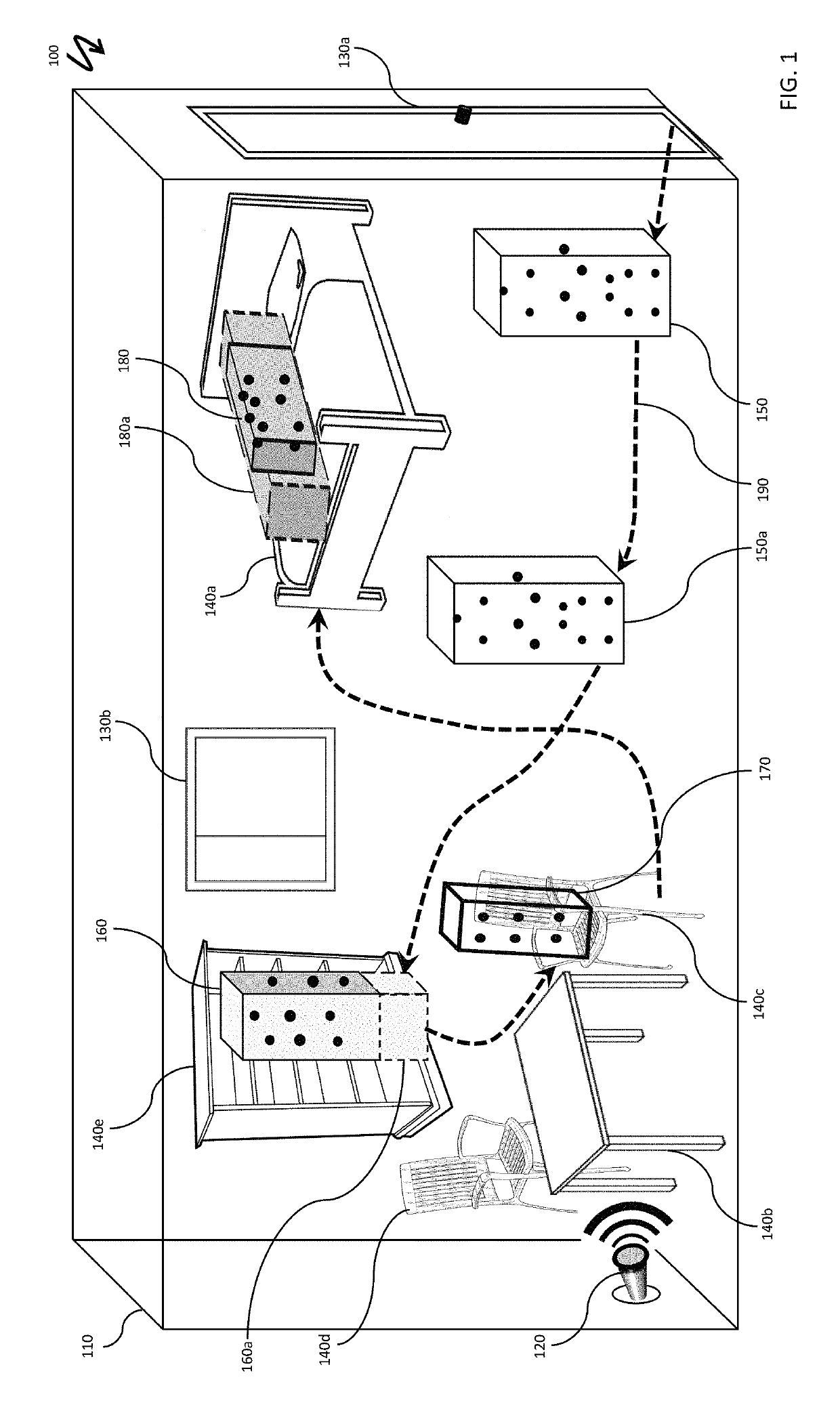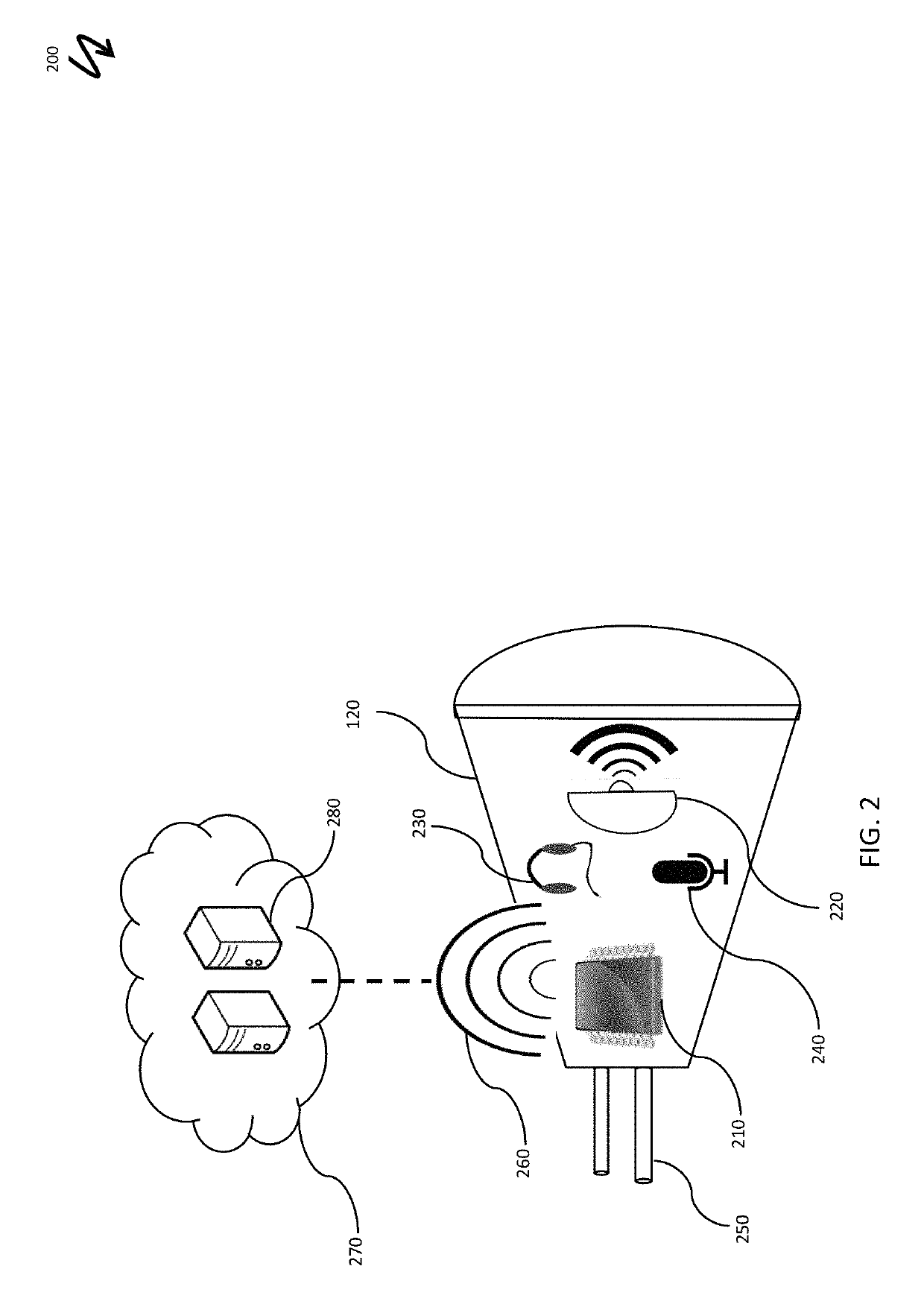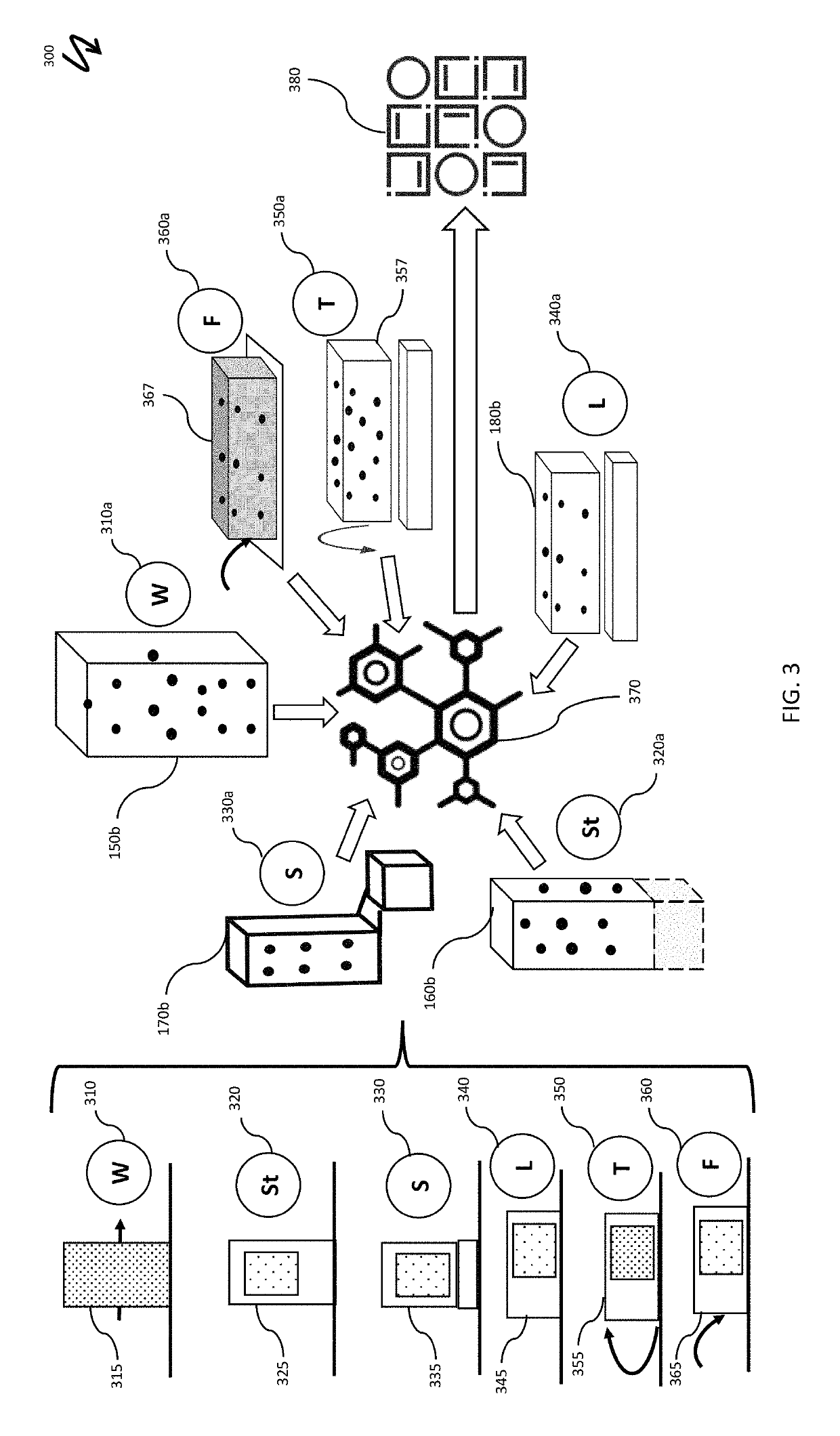Non-contact activity sensing network for elderly care
a non-contact, activity-based technology, applied in the field of remote monitoring of activities, can solve the problems of not being able to meet the privacy requirements of elders, not being able to be used on a permanent basis, and not being able to solve the majority of problems and tasks, and the existing solutions are still rudimentary. , to achieve the effect of enhancing the position and boundaries of a bed or a couch
- Summary
- Abstract
- Description
- Claims
- Application Information
AI Technical Summary
Benefits of technology
Problems solved by technology
Method used
Image
Examples
Embodiment Construction
[0060]The system described herein provides a mechanism for continuous, non-invasive and comprehensive monitoring of elderly individuals in long-term care facilities or elsewhere using an ultra-wideband radar-based, internet enabled tracking device and new Al intense geometric methods of processing point cloud for detecting user state, analyzing user behavior, identifying harmful states and conditions, and alerting caretaker when necessary.
[0061]FIG. 1 is a schematic illustration 100 of a room 110, furniture, tracking device and point clouds for various user states. A long-term care receiver resides in the room 110 that has a tracking device 120 plugged into an AC outlet on a wall. The room 110 has a door 130a, a window 130b and is furnished with a bed 140a, a table 140b, a couple of chairs 140c, 140d, and a bookshelf 140e. FIG. 1 illustrates one dynamic user state—Walking 150, 150a, with denser point clouds and larger size of bounding boxes, and three static user states:[0062]Standi...
PUM
 Login to View More
Login to View More Abstract
Description
Claims
Application Information
 Login to View More
Login to View More - R&D
- Intellectual Property
- Life Sciences
- Materials
- Tech Scout
- Unparalleled Data Quality
- Higher Quality Content
- 60% Fewer Hallucinations
Browse by: Latest US Patents, China's latest patents, Technical Efficacy Thesaurus, Application Domain, Technology Topic, Popular Technical Reports.
© 2025 PatSnap. All rights reserved.Legal|Privacy policy|Modern Slavery Act Transparency Statement|Sitemap|About US| Contact US: help@patsnap.com



